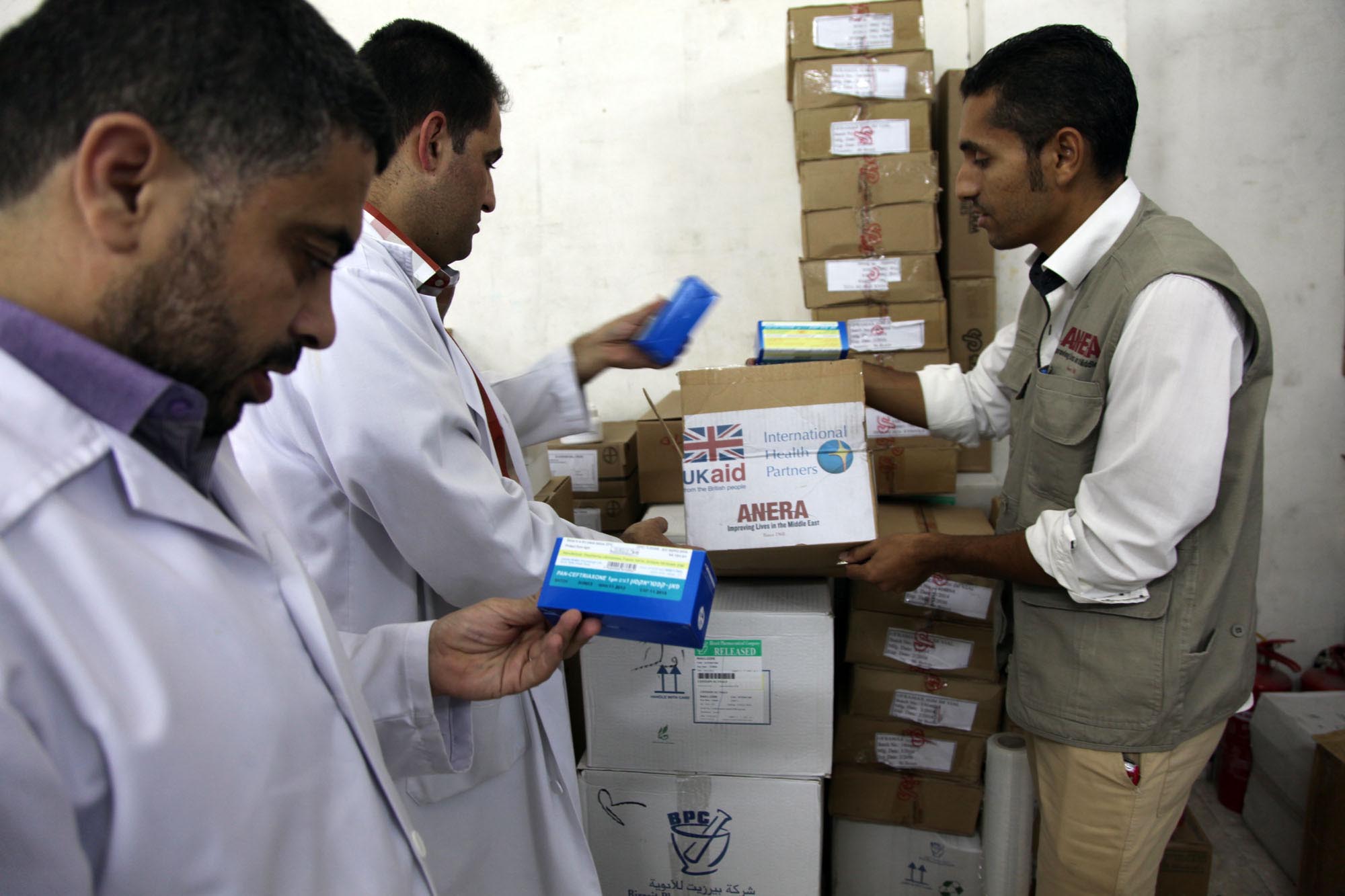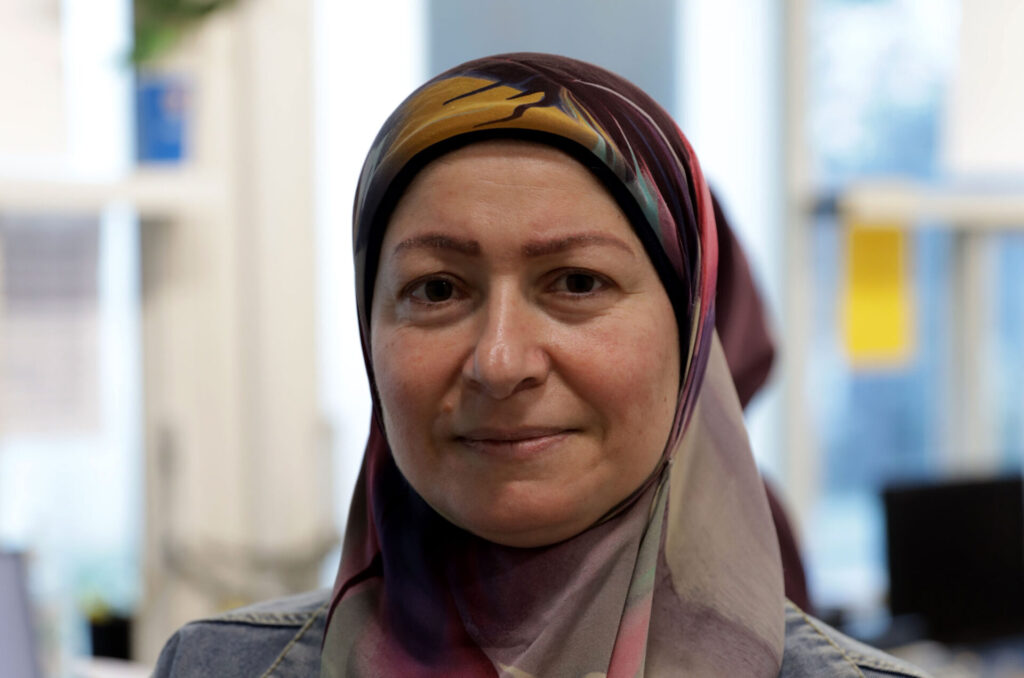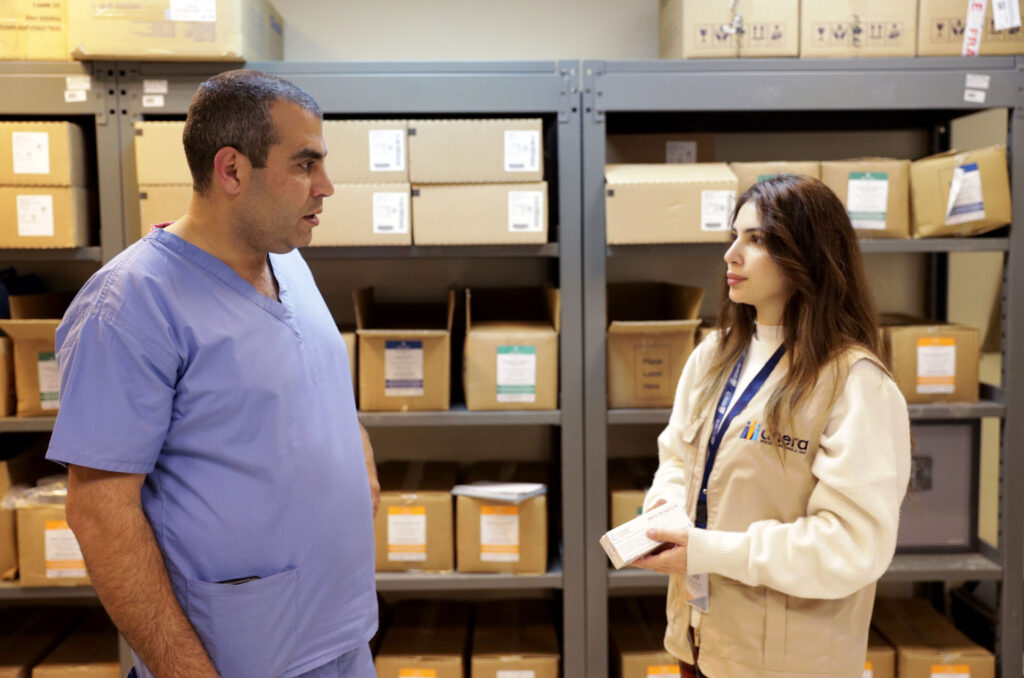Oct, 2014
During the 51 days of bombings, Al Shifa hospital, like other health facilities in Gaza, faced enormous challenges when trying to provide emergency care for the injured. The hospital became an overcrowded refuge as well for patients too afraid of leaving the building to return to shelters with limited resources or their destroyed homes.
Dr. Nael Skaik, who heads Al Shifa’s central pharmacy, was well aware of the need for cleanliness and for medicines to treat post-op patients. “Maintaining a certain degree of cleanliness for wound healing and infection control is a must but it was extremely hard to keep high standards under emergency circumstances.” With entire families being hospitalized for injuries, patient care was further complicated as family members often provide the patient with supportive care and comfort when doctors are unavailable.
Dr. Skaik said chronic shortages of medicines also impeded the hospital’s ability to care for so many patients even after the war ended, “We were already lacking basic medicines and now our medicine supplies are depleted again after dealing with three wars in five years.”
A number of health clinics and hospitals were either damaged or closed during the war so many more cases were referred to Al Shifa for treatment, putting more pressure on the already-stressed facility. “We found ourselves dealing with 12,000+ patients and we used up the quantity of medicine we would normally consume over the course of three months in a matter of weeks,” Dr. Shaik continued. “The hospital had to stop all elective surgeries and prepare an inventory of out of stock items.” He says the list added up to 510 stock-out items, 30% of them priority medicines.”
Anera Supplies Urgently Needed Medicines
Al Shifa reported a critical shortage of the life-saving, broad spectrum antibiotic Ceftriaxone, which is used to treat critical injuries. Anera responded quickly to replenish the supply, procuring 23,000 vials from the West Bank and getting the shipment into Gaza rapidly. The purchase was made possible with UK AID funding through International Health Partners.
“Under normal circumstances, patients need 10-20 vials twice a day for 20 to 30 days. During the war the number of patients increased so much, the need for medicine increased dramatically,” explains Dr. Skaik. “We opened our overburdened obstetrics department and our unfinished surgery building to accommodate the huge influx of patients.”
In the burn unit, 13-year-old Ahmed Fhaid quietly lay in his bed with a board game to keep him busy, a gift from his older sister. “The little boy sustained burns in his left leg while he and his father were trying to escape an explosion,” explains Dr. Skaik. “They were biking through the market to get feed for their pigeons when the bomb exploded.”
After the surgery, the boy was admitted the burn unit where he was given Ceftriaxone antibiotic vials to prevent contamination or inflammation. The burn unit remains crowded with patients like Ahmed. His mother says all he wants to do is join his classmates who are returning to school. “He misses his friends.”




